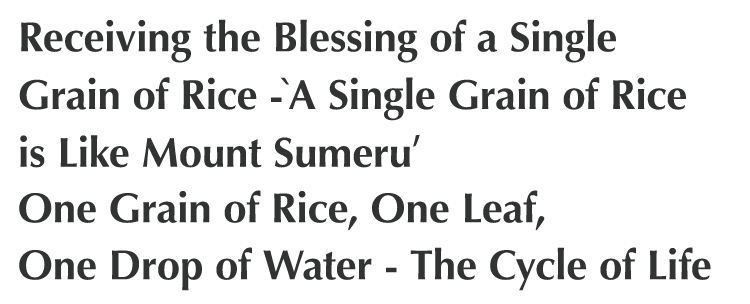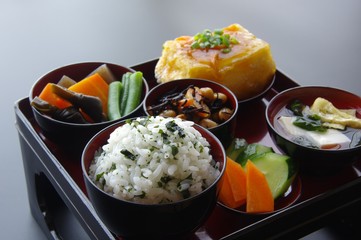
There are two theories about the origins of Genmaicha. One theory dates back to pre-war Kyoto, where tea merchants considered the leftover rice crumbs from mochitsuki (rice cake pounding) as wasteful and roasted them, mixing them with tea leaves. Another theory suggests that in Zen cuisine, the crispy rice grains left on the bottom of the pot after cooking were added to tea.
The gentle ingenuity and wisdom of “not wasting” and “not leaving leftovers” have been carried on in today’s Genmaicha, where every bit of rice is consumed without discarding.

The Japanese have had a deep-rooted love for both tea and rice since ancient times. The origin of rice consumption by the Japanese, whether in the Yayoi or Jomon period, dates back to ancient times when they were already an agrarian society, with rice being their staple food. The consumption form of this “rice,” whether as whole grains or ground into powder, evolved into “Genmaicha” when it became a beverage.
In Zen teachings, a phrase called “Kissako” expresses the warmth of human interaction. It’s like saying, “Well, let’s have some tea.” It helps us momentarily forget the hustle and bustle of daily life and provides a supreme relaxation time where we can quietly reflect, enhancing the “tea bond” that deepens through tea. This culture, backed by Japan’s history, is something we want to cherish as a sustainable lifestyle.
Receiving the Blessing of a Single Grain of Rice – ‘A Single Grain of Rice is Like Mount Sumeru’

The Zen phrase “A single grain of rice is like Mount Sumeru” means that a single grain of rice, starting from its original form as a single grain, grows into rice plants, bearing fruit as a single grain again. “Mount Sumeru” represents the universe. It signifies that the blessings connected to the universe’s foundation are condensed within that single grain of rice.
One grain of rice, one leaf, one drop of water. Leaves and vegetables are “one leaf,” while water is “one drop of water.” Water transforms from moisture in the atmosphere to rain, falling to the Earth, and then returning to the atmosphere. In this cycle, water is sustained. We partake in one drop of it.
Knowing this, we can feel the blessings that connect us to the beginning of the universe and appreciate the heart of Shojin Ryori (Zen cuisine), which does not waste a single grain of rice, one leaf, or one drop of water, and the principles of Genmaicha resonate with this philosophy.

